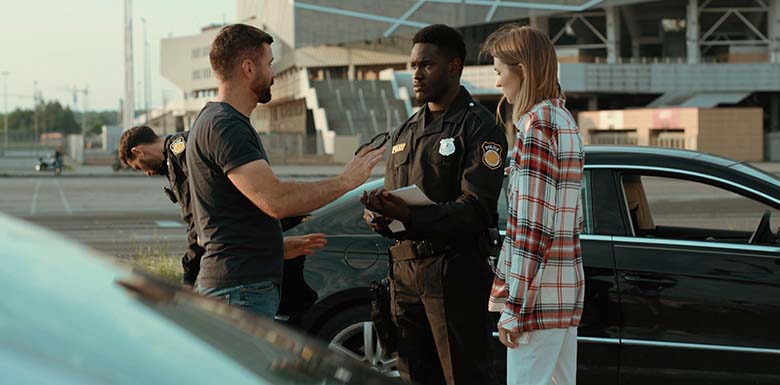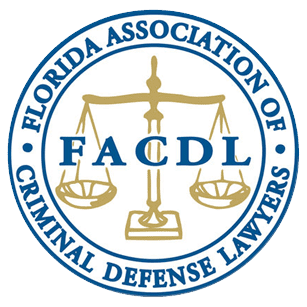
Generally, police need probable cause to conduct any kind of vehicle or home search or field sobriety test. For instance, if an officer pulls a car over for speeding or driving erratically and believes a driver is under the influence, they can search the vehicle, conduct a field sobriety test, and arrest the driver.
Things happen in this order so that your rights against unlawful searches and seizures are protected. However, Driving Under the Influence (DUI) checkpoints were enacted in 1990 to catch drunk drivers before they could cause an accident and cut down on many alcohol-related accidents and deaths.
There are protections in the law to keep your rights safe if you’re stopped at a DUI checkpoint, mainly because they are not the same as a regular traffic stop.
What is a DUI Checkpoint?
A DUI checkpoint (AKA sobriety checkpoint) is a predetermined location where law enforcement officers stop vehicles to check whether the driver is impaired.
By law, these checkpoints are to be highly visible, publicized extensively, and conducted regularly so that it does not seem like they just “sprang up.”
What Happens at a DUI Checkpoint?
Police officers either stop every vehicle or some at a regular interval, such as every third or tenth vehicle.
They then look for signs of intoxication like bloodshot eyes, the smell of alcohol, and/or visible empty containers in the car. They might also ask you questions about your night to check for impairment without visible signs.
Suppose they think you are under the influence. In that case, they can execute specific field sobriety test actions, like a breathalyzer test, to see if your Blood Alcohol Concentration (BAC) is at or above the legal limit of .08. If needed, they can execute an arrest.
What am I allowed to do at a DUI Checkpoint in Florida?
There are many truths and myths surrounding what you are and are not allowed to do when coming to a checkpoint.
You are allowed to:
- Avoid a DUI checkpoint if you do not break any traffic laws. So, if you come to an intersection.before the police barricade, you are allowed to turn down a different road without any penalties
- Remain silent and not answer any questions while providing whatever documentation the officer requests. However, if you feel that the officer is setting you up to fail, stay silent and let it have a day in court.
- Refuse any field sobriety tests, but these might violate the implied consent law.
You are not allowed to:
- Break traffic laws, like an illegal U-turn or a 3-point reverse turn to avoid the stop.
- Be rude or short when answering questions. Even though it is not breaking the law, it can push the cops to be more aggressive in their questioning/accusations.
Penalties for DUI charges in Florida
If you are found to be under the influence and arrested, you could face a range of penalties, including arrests, fines, court costs, license suspension, probation, and other collateral consequences:
First DUI charge
After conviction, your sentence could be as high as six months and may increase to 9 months if there were aggravating factors such as a child in your car or if you had a BAL over .15.
Second DUI charge
After conviction, jail time could be between 9 and 12 months, depending on whether there were any aggravating factors. If the second conviction occurs within five years of the first, you will have to serve at least ten days in jail, of which 48 hours must be consecutive.
Third DUI charge
After conviction, your sentence could increase to 12 months; if your third conviction happens within ten years of the second, you will face 30 days of mandatory jail time.
Multiple DUI convictions
The Florida criminal justice system may consider you a habitual offender and sentence you to 5 years in prison.
DUIs involving property damage or bodily injury
When your alleged drunk driving involves an injury or damage to another’s property, you may be charged with misdemeanor DUI, resulting in a 1- year jail sentence. If the accident results in serious bodily injury, you could get charged with felony DUI, carrying a possible prison sentence of 5 years.
DUI causing death
You could get charged with either vehicular homicide or manslaughter, which are second-degree felonies carrying 15-year sentences. The sentences may be increased if you left the scene of the accident in violation of Florida law.
Turn to a Sarasota Drunk Driving Defense Lawyer
If you are arrested for drunk driving, you could face steep penalties. That is why you need an experienced Sarasota DUI lawyer to help you with your defense.
Call an experienced DUI lawyer Erika Valcarcel, Criminal Defense Lawyer, P.A. right away at (941) 229-8090. She can help you out of jail as soon as possible, begin to build your defense immediately, and aggressively defend you in court.
View All Blogs

